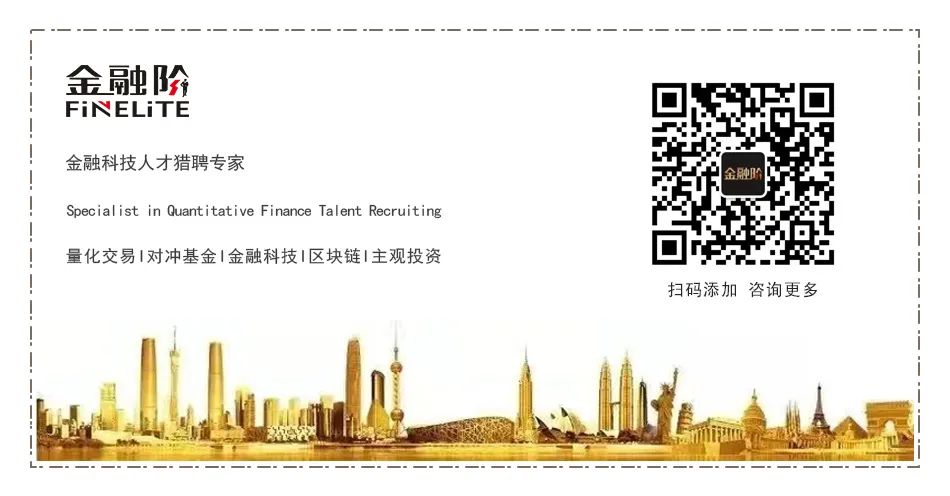Time: 2022-08-17 Preview:

“On April 29, the "2021 China Quantitative Investment White Paper" jointly organized by Huatai Securities, Kuanbang Technology, Amazon Cloud Technology, Chaoyang Sustainability, Finelite and other market authorities was officially released, and a press conference was held in Shenzhen. He Zixiu, the founder of Finelite, attended the conference and gave a speech titled "Job Interview, Quantifying the Pit that Experts Will Step on". We recorded the text for readers.”
01 Preface
Hello everyone! Today, I am honored to come to the conference site of the "White Paper" and participate in the discussion. I would like to take this opportunity to share some of the phenomena and problems we have paid attention to in the process of searching for quantitative talents, hoping to provide some reference for the recruitment, training and management of talents in the quantitative industry.
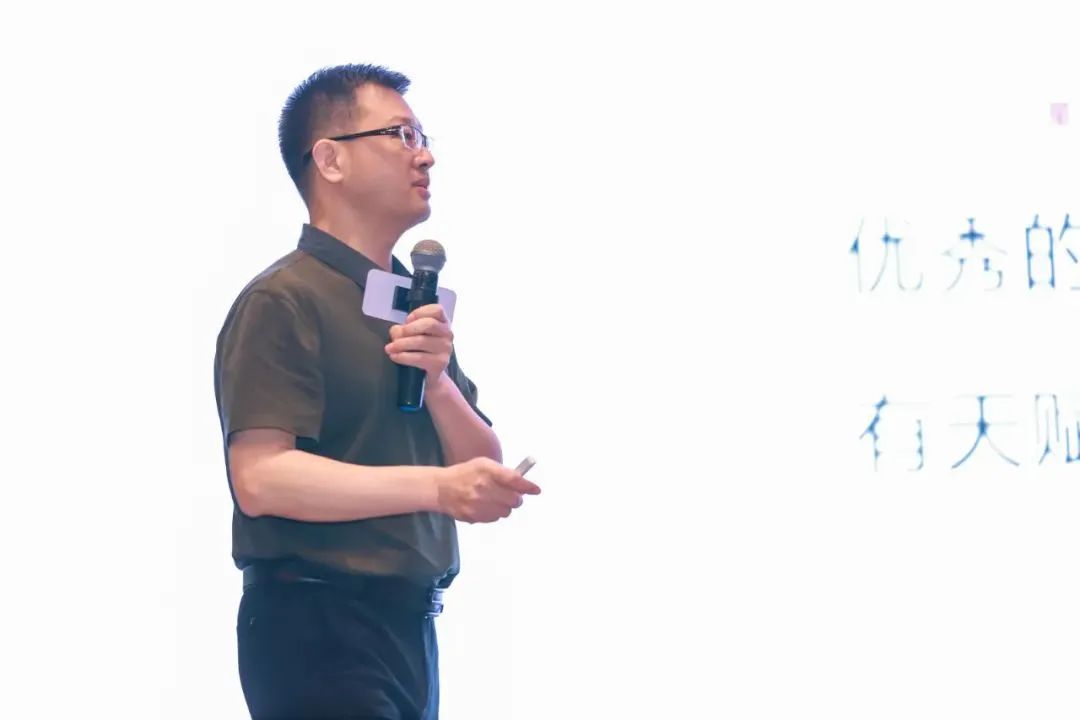
Before we get started, let me share a story with you.
One day, my niece privately chatted with me on WeChat and asked me if I knew about the company "Jiukun".
Of course, I am very familiar with "Jiukun", which is a customer that our company has cooperated with for many years. He was very happy about his niece's inquiry, and subconsciously thought that she had submitted her resume to Jiu Kun.
However, the niece changed the subject and explained: It wasn't her who submitted her resume, but her best friend was in a relationship with a boy who worked in Jiukun Company. It is said that the annual salary is more than one million. I want to know if it is really that high. .
According to my working experience, it is very normal for the domestic quantitative industry to earn an annual salary of one million or more. For some fresh graduates with excellent technical education, they can also get an annual salary of one million.
If my niece wants to pursue a career in quant, I'm very supportive. Her best friend is in a relationship with a boy in the quantitative industry, and I am also very supportive.
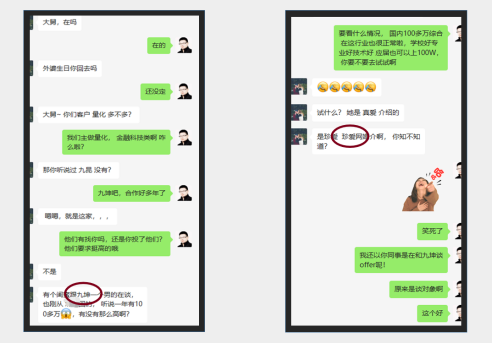
02 Characteristics of quantitative talents: two highs and one low
I wonder if you can see the characteristics of some quantitative industry talents in the stories you just shared?
At present, domestic quantitative talents are characterized by "two highs and one low". "Two high" refers to high IQ and high salary, and "one low" refers to low age. These characteristics are also reflected in the Jiukun quantification staff in the story just now.
Next, let's look at some data:
The first data is the age chart of the 200 people who were successfully recommended to enter the quantitative industry in the financial industry in 2021. Based on the age data of 200 entrants, we calculated an average age of 28.5 years. Among them, 62% of the recruits are under the age of 30, accounting for the vast majority. From this, we can learn that most of the quantitative practitioners are young people, and their age is relatively low.
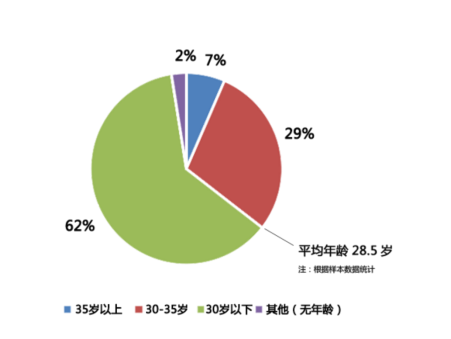
Figure 1: The age of the 200 successful financial professionals recommended to enter the quantitative industry in 2021
The third data is a comparison of the average annual salary of the quantitative industry and the average annual salary of intermediate technicians in BAT factories, algorithms in the Internet industry, and big data programmers. According to the salary survey data of this "White Paper", we calculated that the average annual salary of quantitative practitioners is as high as 570,000. In the process of our talent search, candidates often compare the salary of the quantitative industry with the salary of BAT manufacturers and domestic high-paying industries. We paid special attention to collecting the average annual salary of BAT manufacturers and Internet programmers.
From the data point of view, the average annual salary of our quantified industry has obvious advantages compared with the average annual salary of the positions that candidates often compare - the average annual salary of BAT technicians (intermediate) is 420,000; the average annual salary of Internet industry programmers with 5-10 years of experience is 280,000.
To sum up, we can clearly perceive that talents in the quantitative industry have the characteristics of high IQ, high salary and low age. In terms of high IQ, it actually includes a high degree of education, and there is also a feature of strong science and engineering, that is, students are basically science and engineering students.
There is no doubt that the quantitative industry is very good. However, there are inevitably some misunderstandings in the job interview process in the quantitative industry. Here, I would like to remind you of the phenomena that need to be paid attention to in the process of quantifying talent search based on our experience in talent search.
03 Experience Requirements
● Limited by professional
First, let me show you a resume. This is a candidate we met during the talent search process last year, and now he has successfully joined a quantitative company.
When we first got in touch with him, he had already received an offer from Huawei, and he was not interested in the quantitative industry, and felt that he did not understand quantification either.
It can be seen from his educational experience that, from undergraduate to postdoctoral fellow, he majored in the field of chemistry, and his major has nothing to do with quantification. But why do you like him? Mainly because the technology mastered by his major is closely related to the quantitative industry, and he is proficient in Python, C++, etc.
After repeated docking, he was persuaded by us and tried to interview with the quantitative agency we recommended. After the interview, the candidate developed a strong interest in quantification and was very addicted to doing quantitative written test questions. In the end, the candidate gave up the original Warwick Offer and joined a quantitative company with a scale of tens of billions. In our follow-up interview, this recruit shared with our consultant that he has now fallen in love with the quant industry.
Through this story, I would like to explain that when we recruit talents in the quantitative industry, we will not impose excessive restrictions on majors, and non-financial talents can also try to enter the quantitative industry.
Next, I will show you the data on the talent inventory of quantitative practitioners in our "White Paper" and the data on the positions held by our financial professionals in 2021. Talent inventory data shows that about 71% of quantitative practitioners are not from finance majors, but from computer, mathematics, statistics and other majors. According to job position data, quantitative institutions are most in need of talents in strategic research positions. In the strategy research category, the most recruited are quantitative researchers and C++ development engineers.
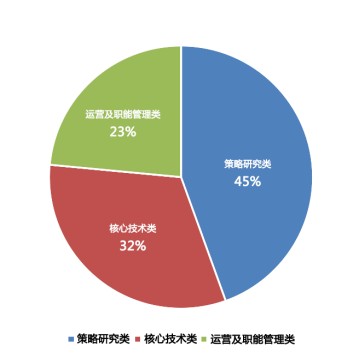
Figure 2: Position distribution of the 200 successfully recommended quantification industry personnel in the financial industry in 2021
Finally, I would also like to share with you a recruitment advertisement poster of a quantitative private equity firm we work with. The company did a simple talent inventory on its recruitment poster, highlighting that 76% of its team members are non-financial professionals.
The above data and cases all show that the quantitative industry is highly inclusive, and it is not only by studying finance that one can engage in quantification. Talents don’t need to be restricted by their majors, and they don’t have to care that they are not financial majors.
● "Cross-eyed" job hunting
In the process of searching for talents in the quantitative industry, we also found that a problem is that quantitative talents are "picky" when applying for a job, that is, they have met many companies, talked to many consultants, and met many bosses, but still do not know which to choose. family. Some candidates came back after looking around and felt that the company they had interviewed with was better, and asked if we were still recruiting for the company's previous position. But unfortunately, the positions are often full and opportunities are missed.
Now the domestic quantitative market does need quantitative talents, and quantitative talents are also very popular, but when you are looking for a job, you should take the shot when you should, otherwise you will easily miss the opportunity.
Here, I would like to give you some advice:
1. Be prepared: don't have too many options, the strategy is to decide what not to do and what not to do first;
2. Consult professionals as soon as possible, but do not involve too many people;
3. Anchor expectations: in the option you missed, anchor a standard that you are fairly satisfied with, and in the next option, once there is an object with the same conditions, make a decisive move.
● Beware of "Masquerade"
According to a news report in March this year, a number of small and medium-sized private equity firms were suspected of encountering "professional sales fraud". There are such a group of people in the market who claim to have client resources that can bring in funds, but in fact one person works as a salesperson in multiple private equity institutions at the same time, and at the same time receives multiple basic salaries. In reality, there are no business outcomes. According to the reporter's understanding, dozens of private equity institutions have been victimized. The most exaggerated private equity company recruited more than 60 people within two months of last year, and the monthly cost was as high as several hundred thousand yuan.
This phenomenon is not common at present, but it is relatively new. I would like to remind everyone here to pay attention to it when recruiting/job-seeking. These "liars" in our human resources industry, we call them "masked people".
There are actually two types of "masked people". The masked person shown in the case just now belongs to one of them, which means that the interviewer does not pretend to be a job seeker. On the one hand, these people may be collecting intelligence, understanding the market, and gaining interview experience; on the other hand, they may, as in the case, defraud short-term basic salary or project commissions.
Another kind of "masked person" refers to a person who is good at interviewing or performance, that is, he can speak and act, speak better than he does, and is good at doing what he likes. During the interview process, the interviewer will meet the candidate late and think that the candidate is very good, but regret the hiring and find that the attitude, ability and performance are actually lacking. Summarized with the knowledge of human resources psychology, this type of "masked man" actually belongs to the personality with a performance type or a phenotype.
In the process of applying for a job, we have to be a little wary of "masked people".
04 Interview Mistakes: 3 Questions You Should Pay Attention to
Here, I also want to share with you a few issues that should be paid attention to in job search communication.
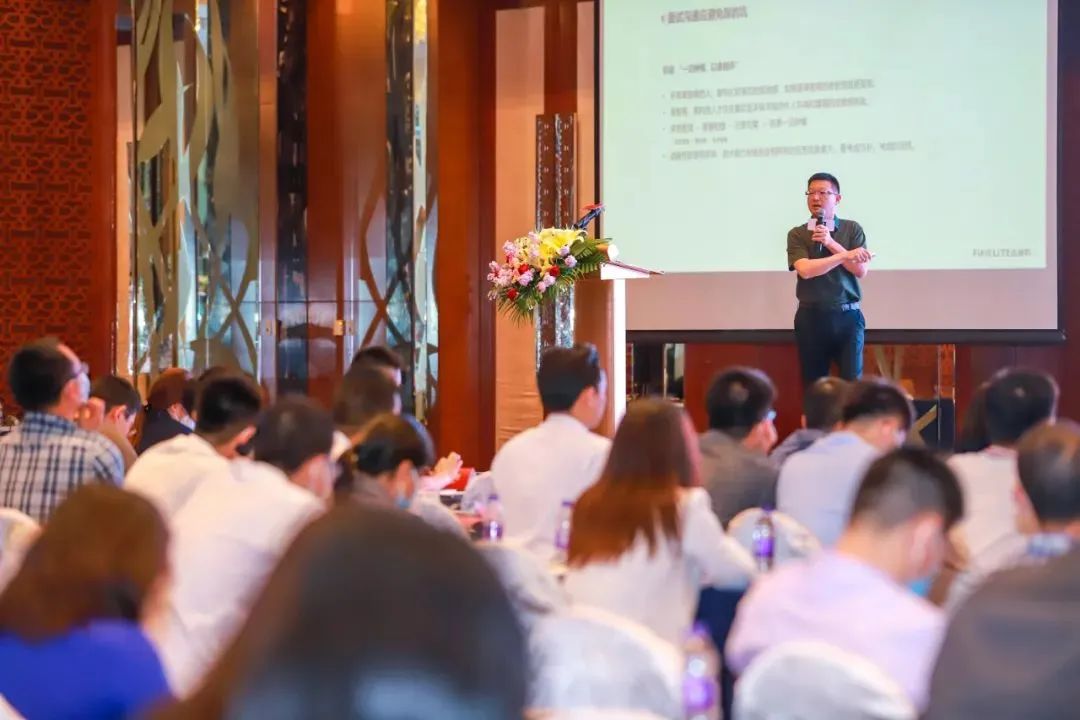
● Sorry to question
In interview communication, job seekers generally have the phenomenon of "ashamed to question". I have questions about the interviewer and the company, but I am embarrassed to raise it. It is often difficult to tell whether the company is trustworthy and suitable for me.
A typical case is that when an unreliable company negotiates salary during an interview, it will tell the candidate not to worry about the treatment, and the annual salary should not be a problem if you do well. When something like this happens, we need to pay attention - don't get carried away by the high salary, stay sane, and think about the reliability of it.
In terms of experience, companies with "pits" usually emphasize the upper limit of salary; companies with "no pits" usually do not overemphasize the upper limit of salary, and at the same time guarantee a relatively decent minimum salary.
Taking this case, I want to remind everyone that during the interview, we must dare to ask questions and confirm sincerely. If confirmed, it is recommended to start with data, especially in terms of compensation system, confidentiality agreement and competition agreement.
● Can't catch the "ball"
During the interview process, the interviewer usually ends by saying: "Thank you for coming to the interview today, do you have any questions?".
This is equivalent to throwing a "ball" to the interviewee, but often many interviewers will not catch the "ball" and do not know why they are asking this question. In fact, when the interviewer throws this question, it usually means that the interviewer basically recognizes the applicant, but further confirmation is required.
Therefore, when encountering such a "ball" during the interview, the applicant must learn to pick up - to ask questions to the interviewer. This question needs to contain three elements: based on the other party's motives; return to one's own situation; and explain that cooperation between the two parties can be win-win.
● Avoid "love at first sight and promise each other"
In the quantitative industry interview process, there is also a very common phenomenon that it is easy to "fall in love at first sight and promise each other".
This means that the interviewer and the applicant are very in tune when communicating, and they generously share a series of content such as strategies and factors that they have been exposed to in the past, and then decide to hire / join the job immediately. As for why it is easy to be impulsive and fall in love at first sight? Our quantitative industry is basically a high-IQ talent, and relevant psychological research shows that high-IQ people often like to pursue the ashes-level cattle environment and the overwhelming sense of accomplishment experience. Therefore, such a situation is prone to occur. From the standpoint of a third party, this is a more impulsive decision. In the actual work process, it is often found that each other is not very suitable.
Whether as a recruiter or an applicant, we must remain calm during interviews and communication, consider complementarity and strategically seek common ground while reserving differences based on the current situation. For candidates, when we are looking for job opportunities, we must consider whether their majors and hobbies are suitable for the company at this stage. For recruiters, when we are looking for talents, we should see whether the skills and experience of the selected talents are complementary to the company.
The above are the common interview communication problems we encountered in the process of talent search. I hope to give you a reference.
Finally, what should we do in interview communication? What we have to do is get back to the essence.
The essence of interview communication is to break the information asymmetry and build trust within a limited time.
When we communicate, we should not only ask questions, but also ask questions; not only ask questions, but also confirm. Here, confirmation refers to signing, back-adjustment and trial, all three steps are indispensable.
In general, the quantitative industry is looking for two kinds of people - excellent industry experts and masters; talented seedlings that can be cultivated. Welcome all outstanding talents here to join our quantitative industry and play quantitative together.
